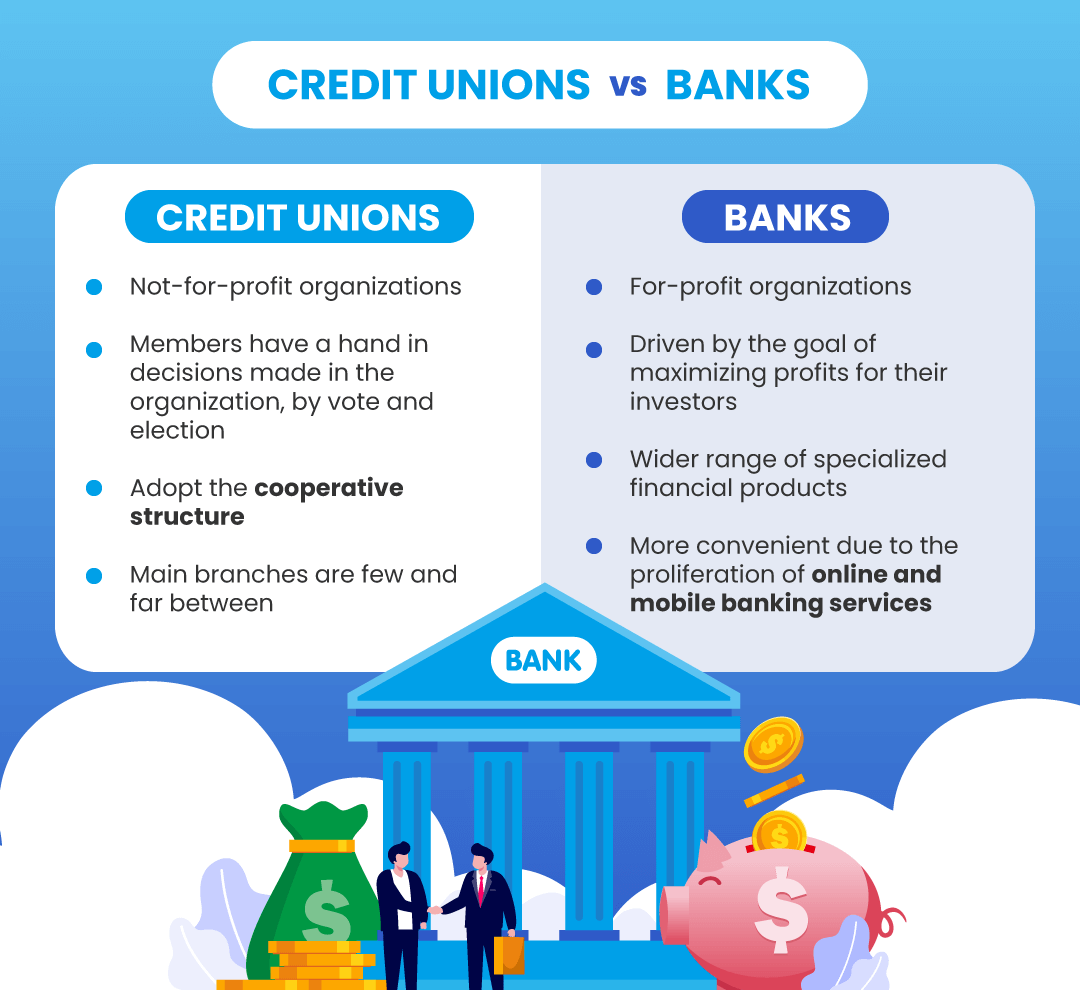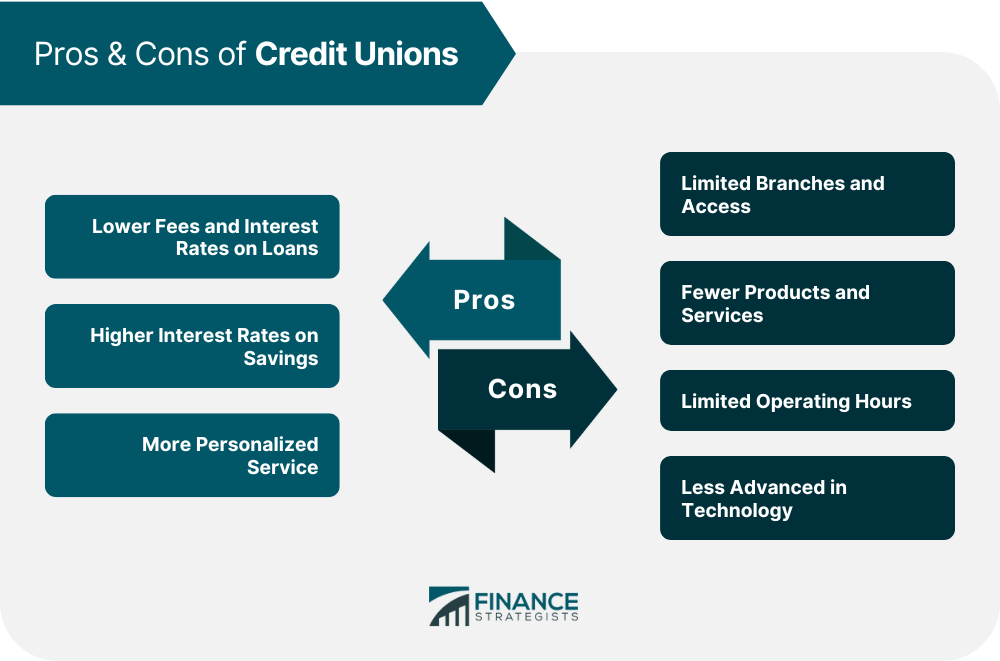Unlocking the Advantages of Cooperative Credit Union: Your Guide
In the world of banks, lending institution stand as a unique and frequently underexplored choice for those looking for a much more personalized strategy to financial. As we delve into the intricacies of lending institution, a globe of possibilities and advantages unfolds, offering a glimpse into a monetary landscape where community values and member-focused services take spotlight. From their modest beginnings to their contemporary influence, recognizing the significance of credit history unions might potentially reshape the method you watch and handle your financial resources.

Background of Credit History Unions
Debt unions have a rich history rooted in the participating activity, going back to the 19th century. The concept of cooperative credit union arised as a response to the economic requirements of individuals who were underserved by typical banks. Friedrich Wilhelm Raiffeisen, a German mayor, is often credited with establishing the first modern-day lending institution in the mid-1800s (Wyoming Credit). Raiffeisen established cooperative financing cultures to help farmers and rural areas gain access to budget friendly debt and escape the clutches of usurious loan providers.
The concept of people integrating to merge their resources and supply financial assistance to every other spread rapidly across Europe and later to North America. In 1909, the first lending institution in the United States was established in New Hampshire, noting the start of a new era in community-focused financial. Ever since, lending institution have actually remained to focus on the financial wellness of their participants over profit, personifying the cooperative principles of self-help, self-responsibility, democracy, equality, uniformity, and equity.
Membership Eligibility Standards
Having established a foundation rooted in cooperative principles and community-focused banking, debt unions preserve specific subscription qualification standards to make certain alignment with their core worths and goals. These standards typically revolve around a typical bond shared by prospective participants, which can include factors such as geographical location, employer, business association, or subscription in a specific area or association. By requiring participants to satisfy certain eligibility requirements, credit history unions intend to cultivate a sense of belonging and shared objective amongst their participants, strengthening the cooperative nature of these banks.
Along with common bonds, some credit rating unions may additionally prolong subscription qualification to member of the family of existing members or individuals who reside in the very same home. This inclusivity assists lending institution expand their reach while still remaining real to their community-oriented values. By preserving clear and clear membership requirements, cooperative credit union can ensure that their members are proactively participated here in supporting the participating worths and goals of the institution.
Financial Products and Services
When considering the array of offerings available, credit rating unions give a varied series of monetary services and products customized to satisfy the distinct needs of their members. These offerings typically include cost savings and checking accounts, fundings (such as vehicle financings, individual financings, and home mortgages), credit report cards, and numerous financial investment alternatives. One key benefit of cooperative credit union is their emphasis on offering affordable interest prices and reduced fees compared to traditional financial institutions. Participants usually gain from personalized customer support, as lending institution focus on constructing solid connections with those they offer.
Additionally, cooperative credit union check this often supply economic education and therapy to help participants boost their financial proficiency and make notified choices. Several credit history unions additionally take part in common branching networks, enabling members to access their accounts at a variety of areas nationwide. In general, the series of financial services and products offered by credit rating unions highlights their dedication to meeting the diverse requirements of their members while prioritizing their monetary wellness.

Advantages Over Standard Banks
Demonstrating a distinctive method to financial solutions, debt unions provide several advantages over standard banks. Furthermore, credit score unions are recognized for their competitive rate of interest prices on financial savings accounts, fundings, and debt cards.
Moreover, debt unions often tend to have a solid focus on financial education and community assistance. They usually supply sources and workshops to assist members improve their economic proficiency and make sound finance decisions (Credit Union Cheyenne WY). By cultivating a feeling of neighborhood and shared objectives, debt unions can create an extra supportive and comprehensive financial atmosphere for their participants
Area Involvement and Social Influence

By collaborating with these entities, debt unions can magnify their social influence and address important issues impacting their areas. In essence, credit report unions offer as stimulants for positive adjustment, driving neighborhood advancement and social progression via their active involvement and impactful initiatives.
Conclusion
To conclude, lending institution have a rich history rooted in community and cooperation, using a varied array of economic product or services with affordable their website prices and customized customer support. They prioritize the economic well-being of their participants over earnings, cultivating a sense of belonging and supplying economic education. By actively taking part in social impact initiatives, debt unions develop a comprehensive and supportive financial setting that makes a positive distinction in both specific lives and communities.
Friedrich Wilhelm Raiffeisen, a German mayor, is often attributed with founding the very first contemporary credit union in the mid-1800s - Wyoming Credit Unions. By calling for participants to fulfill particular qualification needs, credit unions aim to promote a feeling of belonging and shared function amongst their participants, enhancing the participating nature of these monetary institutions
In addition, credit rating unions often supply monetary education and learning and therapy to assist participants improve their financial proficiency and make notified decisions. Overall, the array of monetary products and services provided by debt unions emphasizes their commitment to satisfying the diverse needs of their members while prioritizing their economic well-being.
Furthermore, credit score unions are understood for their competitive interest rates on savings accounts, finances, and credit score cards.